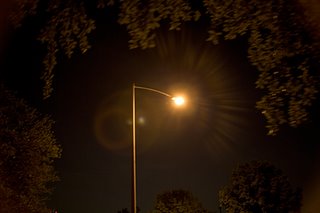
Last December my son and I enjoyed a short time in
Budapest.
In the wake of totalitarianism, it seems that these Hungarians have recovered the celebration of advent with a vengeance.
There are huge advent markets in several places in town.
The most centrally located one, placed in the geographical equivalent of Westlake Mall, offers a live nativity re-enactment of the whole story, from annunciation to the wise-men, all day, every day, on the hour.
It’s complete with livestock, trumpets heralding Gabriel’s visit to Mary, and live camels with Wise-men traveling right through the center of the market in their search for the boy king.
I had to smile as I watched one of the wise man pause on his journey in order to peruse a market stand selling CD’s. Here’s this wise-man, distracted from his pursuit of Jesus because the latest Jay-Z offering has hit the stores! How ironic that pursuing the King of Kings should be displaced by the trivial.
I hadn’t thought of that moment until just this morning, when the picture of the distracted wise man came up on my screen saver. And then I thought of my morning routine. I like to rise, read the Scripture and devotional of the day from my Celtic Daily Prayer guide, and then spend some time in silence.
This morning? The alarm goes off. I’d switched the radio to AM 950 some days earlier to hear a Sonic score. This morning, still on Sports radio, I hear that Hugh Millan will be breaking down the details of the Seahawks disastrous loss to the 49ers. I’m curious if Hugh agrees with me that Jeremy Stevens is at the center of all that ails us. Without a good tight-end on offense, you loss effectiveness on the short passes, and I know that I can catch better than Stevens, even though I’m 50 years old. I listen for the breakdown.
I get up and scan the Times, learning about Microsoft’s new release called Vista. And what is Wi-I anyway? Then the comics. Then the editorials. Then a smoothy. Then a little bit from yesterday’s Pacific Magazine about the climber who rescued a man on Everest. I really need to get back in shape for climbing. Then some push-ups. Then breakfast. Oops. Time for my first appointment, and out the door I go – having been distracted in more ways that I can count, from my pursuit of Christ.
When the wise man appeared on my screen saver, and I remembered the irony of his distractions that December morning, I heard a voice: “That’s you Richard. Filled with desire to seek Christ – but all too often, easily distracted.”
It’s both ironic and strangely challenging that the advent season is so busy. The whirlwind of concerts, parties, cards, shopping, family events, and entertainment options can so fill our lives that Christ is more easily crowded out in December than any other time of the year. But the season is really about learning to seek Christ, focusing all our hopes on Him. Of course, we say that’s where our hopes resides. But on our way to the manger, there are hundreds of voices calling us elsewhere: stay in bed and listen to sports radio – get up early and go skiing – buy those gifts – sign those cards – go to that concert - ponder new skiis.
It’s important to remember that our real vote is with our feet. If we’re continually distracted by the glitter of advent opportunities, none of them inherently harmful, we may never make it to the manger. And it’s the One in the manger that, above all else, we desparately need.
Oh Lord Christ;
Grant that during this coming advent season we would pursue You with our whole hearts. Enable us to carve space in our lives for worship, silence, reading of Your words. So speak to our hearts that we are able to identify the trivial distractions that seduce us away from the manger. And give us the grace to turn away from them, fixing our gaze on your light as the hope of our hearts.





